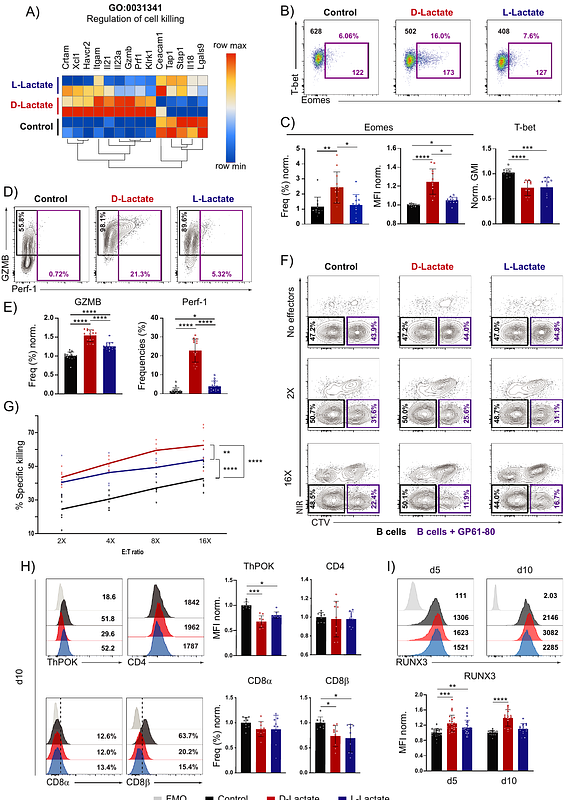D-Lactate drives cytotoxicity in Th1 cells by limiting mitochondrial ROS production through enhanced glyoxalase system activity

D-Lactate drives cytotoxicity in Th1 cells by limiting mitochondrial ROS production through enhanced glyoxalase system activity
Madrigal-Aviles, A.; Plajer, V.; Serve, S.; Dzamukova, M.; Soriano-Baget, L.; Brenner, D.; Mashreghi, M.-F.; Loehning, M.
AbstractL-lactate, long considered a byproduct of the glycolytic shift in activated CD4+ T-cells, has been shown to impact T-cell differentiation and cytokine production. However, D-lactate\'s role in immunity remains poorly understood. Here we compared the effects of D- and L-lactate supplementation on T-helper-1 (Th1) cells. D- but not L-lactate increased the production of Th1 effector cytokines such as IFN-{gamma} and TNF-, and enhanced the cytotoxic activity of Th1 cells. This increase was independent of STAT1, STAT4 or T-bet and also of the metabolic and H3 acetylation changes driven by both lactates. Distinct phenotypes induced by either lactate arose from the differential regulation of mitochondrial reactive oxygen species (ROS) production. D- but not L-lactate limited mitochondrial ROS via enhanced activity of the glyoxalase system. Additionally, selective upregulation of mTORC1 and ERK1/2 signaling in D-lactate-treated cells contributed to the production of cytotoxic molecules, while IFN-{gamma} upregulation was rather mediated by a protection from Blimp-1 transcriptional repression through D-lactate. This study highlights the potential of D-lactate in enhancing Th1 differentiation and effector functions, especially under suboptimal conditions such as glucose deprivation.